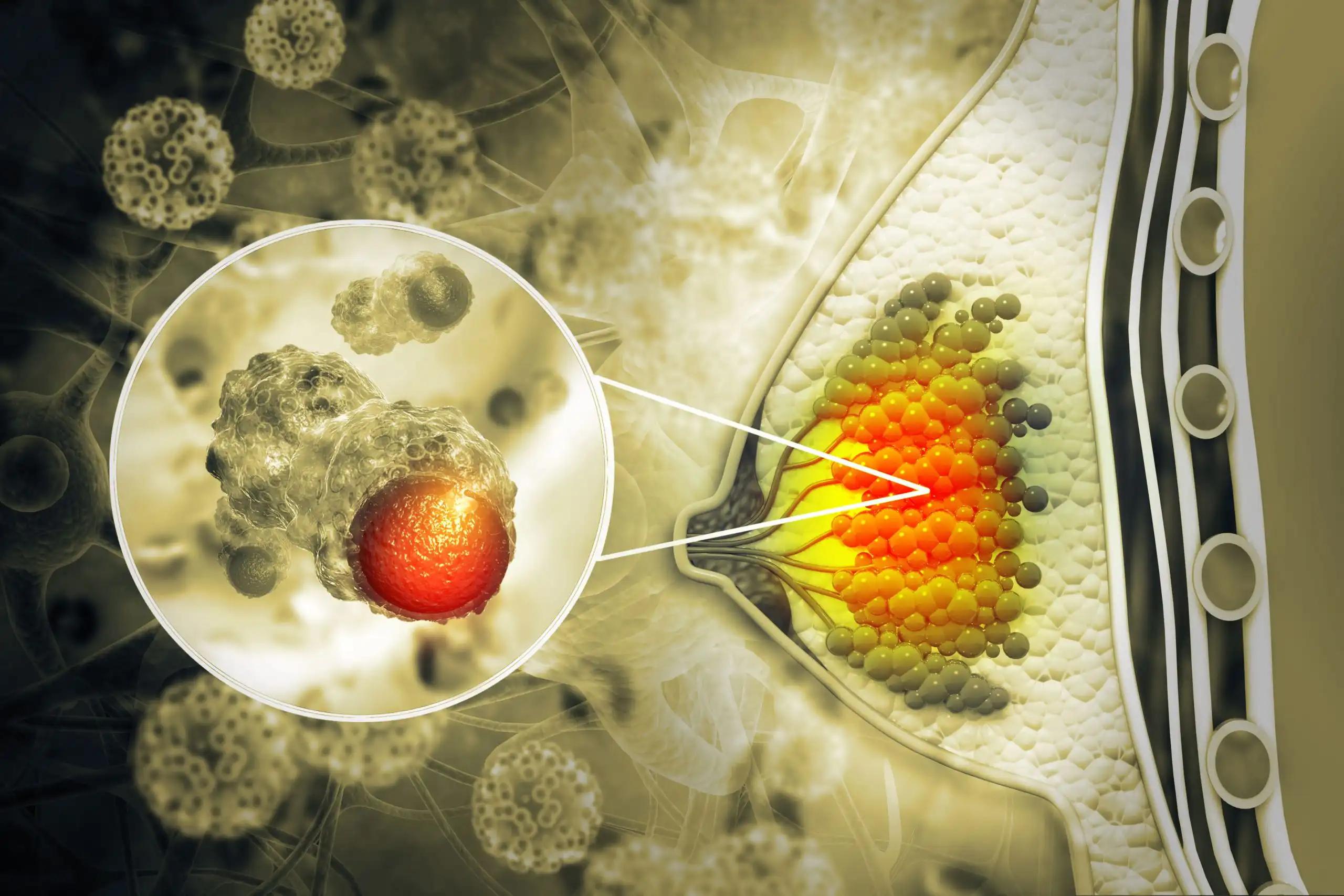KEY TAKEAWAYS
- KAMILLA is a Phase 2 single-arm safety study of trastuzumab emtansine (T-DM1) in HER2-positive advanced breast cancer.
- The trial examined T-safety DM1’s and tolerability, specifically AEPIs, grade 3 AEPIs, treatment-related AEs, and pneumonitis.
- 70% of 2185 patients had two or more metastatic therapy lines.
- Cohort 2 (Asia) had a higher AEPI rate than cohort 1 (Global) due to a higher grade 3 thrombocytopenia rate.
- The results confirmed T-tolerable DM1’s safety profile and were used in advanced breast cancer in Asian patients.
- Both cohorts had lower median progression-free and overall survival with more prior treatment lines.
Patients with advanced HER2-positive breast cancer are being studied in the KAMILLA study, a single-arm safety trial of trastuzumab emtansine (T-DM1) (BC; NCT01702571). The final analysis of cohort 2 (Asia) is reported alongside previously published results from cohort 1 (Global). Patients progressed on chemotherapy and anti-HER2 therapy or ≤ 6 months after adjuvant therapy for HER2-positive, locally advanced, or metastatic breast cancer. The primary aim was to assess further the safety and tolerability of T-DM1 (3.6 mg/kg, delivered intravenously every three weeks), focusing on hepatic events, allergic responses, thrombocytopenia, bleeding events, and all-grade pneumonitis of adverse events of primary interest (AEPIs) of grade ≥ 3. So far (as of 31 July 2019), KAMILLA has enrolled 2185 patients (cohort 1, n = 2003; cohort 2, n = 182). The total number of people treated and included in the safety population was 2002, with an average of 181 per cohort.
In the context of metastatic disease, over 70% of patients had already tried two or more therapy modalities. Both cohorts were exposed to T-DM1 for a median of 5.6 months and followed for a median of 5.0 months. Cohort 2 (93/181; 51.4% of total) had a higher AEPI rate than cohort 1 (462/2002; 23.1% of total), primarily due to a more significant occurrence of grade ≥ 3 thrombocytopenia. Most cases (128/138) of grade ≥ 3 thrombocytopenia cleared entirely in the second batch. Cohort 2 had twice as many cases of AEPI of grade ≥ 3 attributable to therapy as cohort 1, primarily due to thrombocytopenia. 1.0% and 2.2% of people had pneumonitis of any severity. {:gap {:kind :userinput}} found no other warning signs. Progression-free survival was 6.8 months (95% confidence interval: 5.8-7.6 months), and overall survival was 27.2 months (95% confidence interval: 25.5-28.7 months) and 29.5 months, respectively, for Cohorts 1 and 2, respectively (21.1 months to non-estimable). Median PFS and OS decreased with several prior treatment lines in both cohorts. Consistent with prior findings in Asian patients, data from Cohort 2 provide credence to T-tolerable DM1’s safety profile and potential utility in treating advanced BC.
Source: https://pubmed.ncbi.nlm.nih.gov/36084395/
Clinical Trial: https://clinicaltrials.gov/ct2/show/NCT01702571
Wuerstlein R, Ellis P, Montemurro F, Antón Torres A, Delaloge S, Zhang Q, Wang X, Wang S, Shao Z, Li H, Rachman A, Vongsaisuwon M, Liu H, Fear S, Peña-Murillo C, Barrios C. Final results of the global and Asia cohorts of KAMILLA, a phase IIIB safety trial of trastuzumab emtansine in patients with HER2-positive advanced breast cancer. ESMO Open. 2022 Oct;7(5):100561. doi: 10.1016/j.esmoop.2022.100561. Epub 2022 Sep 7. PMID: 36084395; PMCID: PMC9588895.



